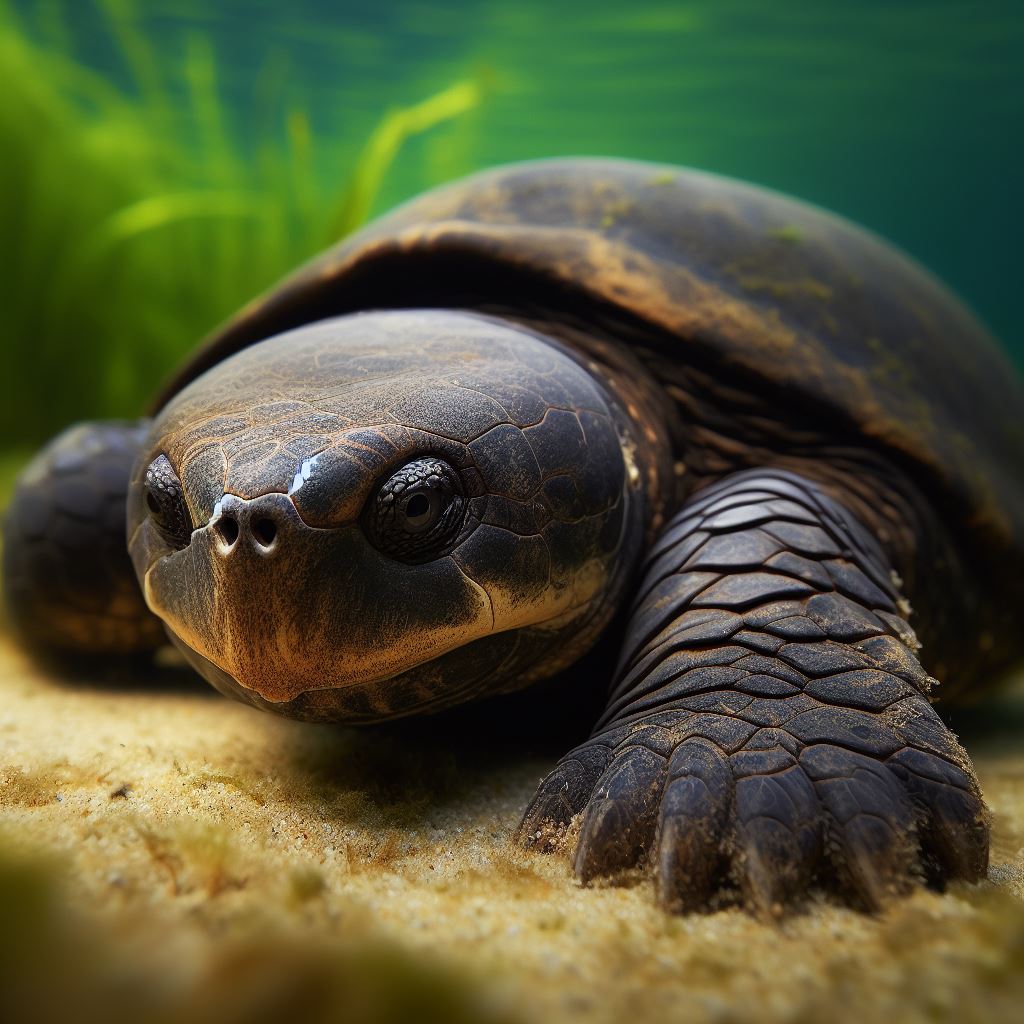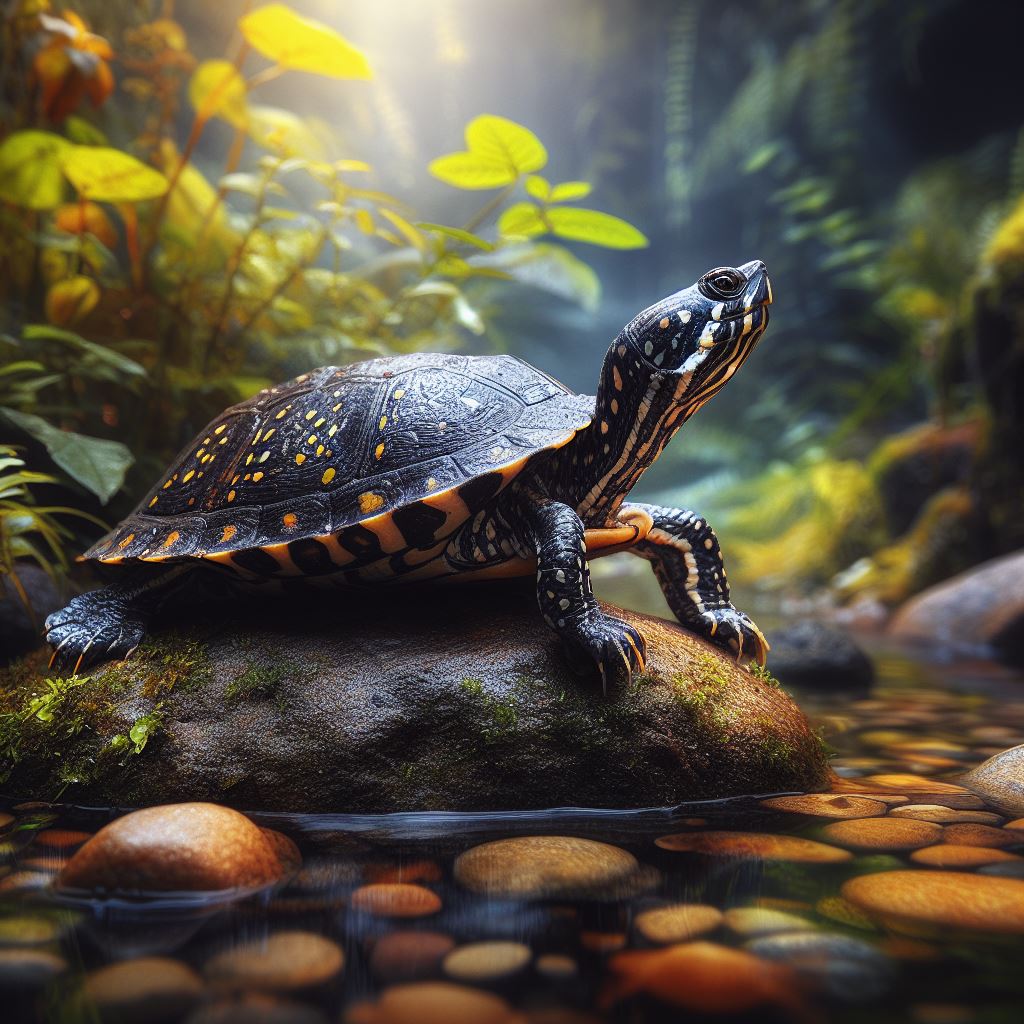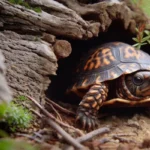Are you a pet lover with a small living space?
Or maybe you’re just someone who appreciates the beauty and charm of tiny creatures?
If so, then the smallest pet turtle might be the perfect companion for you.
In this article, we’ll explore the world of the smallest pet turtles, discuss the different species available, and provide you with essential care tips.
With the right information and guidance, you’ll be able to provide a loving home for these adorable, low-maintenance pets.
Why Choose a Small Pet Turtle?
Small pet turtles are an excellent choice for people who live in apartments or have limited space.
They require less room than larger turtle species, making them suitable for smaller tanks or enclosures.
Furthermore, their compact size contributes to their ease of handling and simplified care requirements.
These tiny turtles can also be a great conversation starter, as their unique appearance and charming personalities are sure to captivate anyone who meets them.
The Benefits of Small Pet Turtles
- Low-maintenance
- Suitable for small living spaces
- Adorable and unique appearance
- Long lifespan
- Great for beginners
The Smallest Pet Turtle Species
There are several small pet turtle species to choose from, each with its own unique characteristics and care requirements.
Here are some of the most popular small pet turtles that you can consider adding to your family:
1. Musk Turtles (Sternotherus odoratus)

Musk turtles, also known as stinkpot turtles, are one of the smallest pet turtle species available.
They typically grow to be around 3-5 inches in length and have a dark, highly-domed shell.
Musk turtles are known for their distinctive musky odor, which they emit when threatened.
These aquatic turtles are relatively easy to care for, making them a great choice for beginners.
2. Mud Turtles (Kinosternon subrubrum)
Mud turtles are another small pet turtle species, with a maximum size of around 4-5 inches.
They have a dark, smooth shell and are usually found in shallow water habitats.
Mud turtles are known for their docile nature and are relatively low-maintenance, making them a popular choice among turtle enthusiasts.

3. Spotted Turtles (Clemmys guttata)

Spotted turtles are a visually striking small pet turtle species, with their dark shells covered in bright yellow spots.
They grow to be around 3-5 inches in length and prefer shallow water habitats with plenty of vegetation.
Spotted turtles are slightly more challenging to care for than musk or mud turtles, but they make a rewarding and beautiful pet for dedicated turtle keepers.
Essential Care Tips for Small Pet Turtles
Proper care is crucial for the health and happiness of your small pet turtle. Here are some essential care tips to ensure that your turtle thrives in its new home:
Provide an Appropriate Habitat
Your small pet turtle will require an aquatic habitat with both water and dry areas.
A suitable tank size will depend on the species and number of turtles, but a general guideline is 10 gallons of water per inch of turtle shell.
Equip the tank with a water heater, filter, and UVB lighting to mimic their natural environment.
Additionally, provide hiding spots and basking areas for your turtle to rest and regulate its body temperature.
Maintain Water Quality
Clean water is essential for the health of your small pet turtle. Invest in a high-quality water filter and change the water regularly to keep it clean and free of harmful bacteria.
Test the water’s pH, ammonia, nitrite, and nitrate levels regularly, and make any necessary adjustments to maintain optimal water quality.
Offer a Balanced Diet
A well-balanced diet is crucial for your small pet turtle’s health and growth.
Feed them a combination of commercial turtle pellets, leafy greens, and occasional protein sources such as insects or fish.
Be sure to research the specific dietary needs of your turtle species, as their requirements may vary.
Monitor Your Turtle’s Health
Regularly observe your small pet turtle for any signs of illness or injury.
Some common health issues in turtles include respiratory infections, shell rot, and parasites.
If you notice any changes in your turtle’s behavior or appearance, consult a veterinarian experienced in reptile care.
Handle with Care
While small pet turtles can be handled, it’s essential to do so gently and infrequently to minimize stress.
Make sure to thoroughly wash your hands both before and after touching your turtle in order to minimize the transmission of bacteria.
Choosing the Right Small Pet Turtle for Your Lifestyle
Before bringing home a small pet turtle, it’s important to consider your lifestyle and preferences.
Here are some factors to keep in mind when selecting the perfect tiny turtle companion:
Time Commitment
While small pet turtles are generally low-maintenance, they still require daily care and attention.
Consider your schedule and ensure that you have enough time to devote to your turtle’s needs, such as feeding, cleaning, and monitoring their health.
Budget
Caring for a small pet turtle can be relatively affordable, but there are still costs involved.
In addition to the initial cost of the turtle, you’ll need to invest in a suitable habitat, equipment, and ongoing expenses like food and veterinary care.
Make sure you’re financially prepared to provide for your turtle’s needs.
Space Constraints
Although small pet turtles require less space than their larger counterparts, you’ll still need to accommodate their habitat within your living area.
Ensure that you have enough room for a tank or enclosure that meets the size requirements for your chosen species.
Local Regulations
Before purchasing a small pet turtle, research any local regulations or restrictions on turtle ownership.
Some species may be protected or require permits, so it’s essential to be aware of the laws in your area.
Enrichment Ideas for Small Pet Turtles
Providing mental and physical stimulation for your small pet turtle is crucial for their well-being.
Here are some enrichment ideas to keep your turtle happy and engaged:
Varied Habitat Decor
Incorporate a variety of plants, rocks, and hiding spots into your turtle’s habitat to create a stimulating environment.
This will encourage exploration and provide mental stimulation for your turtle.
Foraging Opportunities
Make mealtime more engaging by offering foraging opportunities for your small pet turtle.
Scatter food throughout the tank or hide it in puzzle feeders to encourage natural foraging behaviors.
Sensory Stimulation
Introduce new scents, textures, and visual stimuli into your turtle’s environment to keep them engaged and curious.
This can be achieved through the use of live plants, different substrates, and even colorful tank decorations.
Social Interaction
While many small pet turtles are solitary by nature, some species may benefit from social interaction with other turtles.
Research the social preferences of your chosen species and consider adding a compatible tank mate if appropriate.
Preparing for Your Small Pet Turtle’s Arrival
Once you’ve chosen the perfect small pet turtle for your lifestyle, it’s essential to prepare for their arrival.
Here are some steps to facilitate a seamless transition:
Set Up the Habitat
Before bringing your turtle home, set up their habitat with the necessary equipment, such as a tank, water heater, filter, and UVB lighting.
This will allow you to monitor the water temperature and quality, making any necessary adjustments before introducing your turtle to their new environment.
Research Care Requirements
Educate yourself on the specific care requirements of your chosen turtle species.
This includes understanding their dietary needs, habitat preferences, and potential health issues.
Knowledge is key to providing the best care for your small pet turtle.
Locate a Reptile Veterinarian
Find a veterinarian experienced in reptile care before bringing your turtle home.
Establishing a relationship with a vet will ensure that you have a trusted professional to consult if your turtle experiences any health issues.
Create a Care Schedule
Develop a care schedule to help you stay organized and ensure that your turtle’s needs are met consistently.
This may include daily tasks like feeding and water quality checks, as well as periodic tasks like tank cleaning and veterinary visits.
Conclusion
Small pet turtles can make wonderful companions for those with limited space or a love for tiny creatures.
By carefully considering your lifestyle, providing enrichment, and preparing for your turtle’s arrival, you’ll create a loving and nurturing environment for your new companion.
Remember to research the specific needs of your chosen species, and consult with a reptile veterinarian for expert advice.
With the right information, dedication, and proper care, you’ll be well-equipped to care for your smallest pet turtle and enjoy the many rewards of turtle keeping for years to come.










